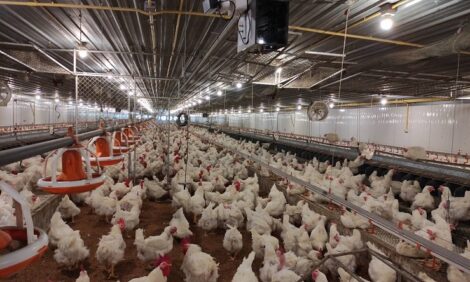



Advice on Fighting Flies on Farms
MALAYSIA - Fly-breeding in poultry farms can be prevented if farmers practise good housekeeping.New Straits Times has published an article in response to a previous piece – 'Organic way of fighting fly menace' (NST, July 24) – in which Perak Health, Local Government, Consumer Affairs, Environment, Public Transport and Non-Islamic Affairs Committee chairman, Datuk Dr Mah Hang Soon, was quoted as saying that a report on the fly menace last year showed 47 per cent of flies originated from rubbish dumps and 33 per cent from poultry farms.
The author of the latest article says fly-breeding in poultry farms can be prevented if farmers practise good housekeeping. Flies breed on wet, putrefying poultry droppings. If the poultry droppings in the poultry houses are kept dry, the fly breeding problem can be eliminated.
Fly-breeding does not occur in closed poultry houses with forced-draught ventilation, where thermostatically-controlled exhaust fans draw air from the outside through evaporative cooling pads. Due to the constant strong airflow in such poultry houses, the poultry droppings can be kept dry.
Farmers with the traditional 'open' poultry houses should switch to the closed-house system of poultry rearing, which is effective in terms of productivity and hygiene, according to the article. This is because the evaporative cooling pads keep the temperature in the poultry house low, providing a comfortable breeding environment for the poultry.
Smaller poultry farmers who cannot afford to switch to the closed-house system, must ensure that the floor of their open poultry house is cemented so that droppings be cleaned and the floor washed daily.
Alternatively, on the ground level of raised poultry houses for broiler chickens sawdust could be spread on the floor to absorb the excess moisture from the poultry droppings to keep them dry. More sawdust could be spread whenever the floor gets wet.
The roof of the poultry house should be extended sufficiently on the sides to prevent rain water from wetting the poultry litter.
The farmer should also ensure that water does not drip or leak from the poultry drinkers and nipples, and wet the floor.
In such a system, poultry litter along with the droppings be removed effectively when the poultry shed is depopulated, concludes the New Straits Times article.








